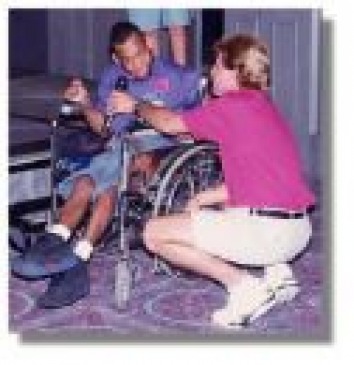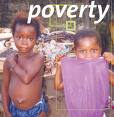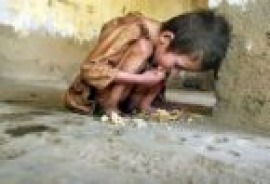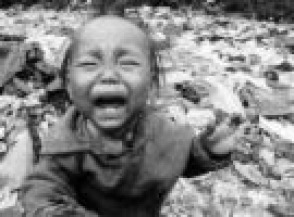THE PEOPLE WHO HAVE DISABILITIES

DEAF PEOPLE A hearing impairment or deafness is a full or partial decrease in the ability to detect or understand sounds.[1] Caused by a wide range of biological and environmental factors, loss of hearing can happen to any organism that perceives sound. "Hearing impaired" is often used to refer to those who are deaf, although the term is viewed negatively by members of Deaf culture, who prefer the terms "Deaf" and "Hard of Hearing".Sound waves vary in amplitude and in frequency. Amplitude is the sound wave's peak pressurevariation. Frequency is the number of cycles per second of a sinusoidal component of a sound wave. Loss of the ability to detect some frequencies, or to detect low-amplitude sounds that an organism naturally detects, is a hearing impairment.
HANDICAPPED PERSON

HANDICAPPED PERSONS
ARE THE SECOND BENEFICIARY FOR A CAUSE.THEY ALSO NEED US FOR HELP ,SOME OF THEM WOULD LIKE TO WALK AGAIN LIKE JUST A NORMAL PERSON LIKE WE DO ,THEY BEEN TREATED FOR OPERATION AND RECOVERY.JUST LIKE OTEHRS .WE WANT OUR SUPPORT JUST DONATE ANY KIND OF AMOUNT AND WE WILL BE GLADLY APPRECIATED IN ALL OF YOUR SUPPORT AGAIN THANK YOU AND MORE POWER
Disability is defined by the Americans with Disabilities Act of 1990 as "a physical or mental impairment that substantially limits one or more major life activities."[1] An individual may also qualify as disabled if he/she has had an impairment in the past or is seen as disabled based on a personal or group standardor norm. Such impairments may include physical, sensory, and cognitive or intellectual impairments.Mental disorders (also known as psychiatric or psychosocial disability) and various types of chronic disease may also be considered qualifying disabilities.
A disability may occur during a person's lifetime or may be present from birth.
THE POOR PEOPLE

THE POOR PEOPLE ARE THE MAIN BENEFICIARY FOR THIS CAUSE THEY ARE THE ONE WHO REALLY NEEDS OUR HELP.BECAUSE THEY ARE THE ONE WHO SUFFERED SO MUCH IN THIS CRUEL WORLD WE LIVE IN .LET US JOIN OUR HELPING HANDS TO HELP THOSE WHO REALLY IN NEED,TOGETHER WE WILL SOLVE THIS ONE AT A TIME UNTIL IT WAS FINISH. OUR CREATOR IN HEAVEN IS OUR GUIDANCE. SUPPORT US IN ANYTHING YOU CAN DO AND THE REST WILL ADDED UNTO YOU. THANK YOU AND MAY GOD BLESS YOU ALWAYS.
Poverty is the condition of lacking basic human needs such as nutrition, clean water, clothing,shelter and health care because of the inability to afford them.[1] This is also referred to as absolute poverty or destitution.[1] Relative poverty is the condition of having fewer resources or less income than others within a society or country, or compared to worldwide averages. [1
Shortage of basic needsHardwood surgical tables are commonplace in rural Nigerian clinics.Rises in the costs of living make poor people poorer. Poor people spend a greater portion of their budgetson food than richer people. As a result poor households, and those near the poverty threshold can be particularly vulnerable to increases in Shocks to food prices. For example in late 2007 increases in the price of grains[21] led to food riots in some countries[22][23][24]. The World Bank warned that 100 million people were at risk of sinking deeper into poverty.[25] Threats to the supply of food may also be caused by Drought and the water crisis.[26][27][28] Intensive farming often leads to a vicious cycle of exhaustion ofsoil fertility and decline of agricultural yields.[29] Approximately 40% of the world's agricultural land is seriously degraded. [30] [31] In Africa, if current trends of soil degradation continue, the continent might be able to feed just 25% of its population by 2025, according to UNU's Ghana-based Institute for Natural Resources in Africa.[32]
Health care can be widely unavailable to the poor. There are more Ethiopian doctors in Chicago than there are in Ethiopia.[33] The drain has a damaging effect on the Philippine's health care system. It is estimated that approximately 100,000nurses emigrated between 1994 and 2006.[34]
Overpopulation and lack of access to birth control methods.[35][36] Note that population growth slows or even become negative as poverty is reduced due to the demographic transition.[37
Effects of poverty
Malnutrition and sanitationThe effects of poverty may also be causes, as listed above, thus creating a "poverty cycle" operating across multiple levels, individual, local, national and global.
[edit]Health
Diseases of povertyHomeless man on bench, Hermosillo, Sonora, MexicoOne third of deaths - some 18 million people a year or 50,000 per day - are due to poverty-related causes: in total 270 million people, most of them women and children, have died as a result of poverty since 1990.[38] Those living in poverty suffer disproportionately from hunger or even starvation and disease.[39]Those living in poverty suffer lower life expectancy. According to the World Health Organization, hunger and malnutrition are the single gravest threats to the world's public health and malnutrition is by far the biggest contributor to child mortality, present in half of all cases.[40] Every year nearly 11 million children living in poverty die before their fifth birthday. 1.02 billion people go to bed hungry every night.[41] Poverty increases the risk ofhomelessness.[42] There are over 100 million street children worldwide.[43] Increased risk ofdrug abuse may also be associated with poverty.[44] According to the Global Hunger Index,South Asia has the highest child malnutrition rate of world's regions.[45] Nearly half of allIndian children are undernourished,[46] one of the highest rates in the world and nearly double the rate of Sub-Saharan Africa.[47]Great Depression: man lying down on pier, New York City docks, 1935.
[edit]Education
Research has found that there is a high risk of educational underachievement for children who are from low-income housing circumstances. This often is a process that begins inprimary school for some less fortunate children. In the US educational system, these children are at a higher risk than other children for retention in their grade, special placements during the school’s hours and even not completing their high school education. [48] There are indeed many explanations for why students tend to drop out of school. For children with low resources, the risk factors are similar to excuses such as juvenile delinquency rates, higher levels of teenage pregnancy, and the economic dependency upon their low income parent or parents. [48]
Families and society who submit low levels of investment in the education and development of less fortunate children end up with less favorable results for the children who see a life of parental employment reduction and low wages. Higher rates of early childbearing with all the connected risks to family, health and well-being are majorly important issues to address since education from preschool to high school are both identifiably meaningful in a life. [48]
Poverty often drastically affects children’s success in school. A child’s “home activities, preferences, mannerisms” must align with the world and in the cases that they do not these students are at a disadvantage in the school and most importantly the classroom. [49] Therefore, it is safe to state that children who live at or below the poverty level will have far less success educationally than children who live above the poverty line. Poor children have a great deal less healthcare and this ultimately results in many absences from the academic year. Additionally, poor children are much more likely to suffer from hunger, fatigue, irritability, headaches, ear infections, and colds. [49] These illnesses could potentially restrict a child or student’s focus and concentration.
[edit]Violence
Areas strongly affected by poverty tend to be more violent. In one survey, 67% of children from disadvantaged inner cities said they had witnessed a serious assault, and 33% reported witnessing a homicide.[50] 51% of fifth graders from New Orleans (median income for a household: $27,133) have been found to be victims of violence, compared to 32% in Washington, DC (mean income for a household: $40,127).[51]
[edit]




